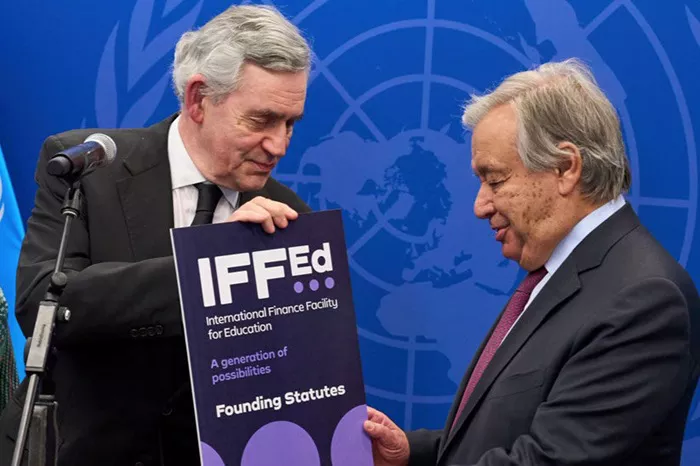Innovative collaboration to tackle global education financing gap
The World Bank and the International Finance Facility for Education (IFFEd) have formed a groundbreaking partnership aimed at transforming global education financing. This collaboration seeks to address the ongoing education and skills crisis in lower-middle-income countries (LMICs) and is critical for fostering economic opportunity and human dignity worldwide.
Education Crisis in LMICs
Education plays a vital role in shaping economic growth and social stability. Unfortunately, millions of children and young people in LMICs are being left behind. Six in ten children in these countries cannot read or understand simple text by the age of ten. Additionally, 251 million children and youth are currently out of school, the vast majority of whom live in LMICs.
The gap in education investment has long-term consequences not only for individuals but also for societies that remain trapped in cycles of poverty. LMICs spend significantly less on education compared to high-income countries—just $309 per child annually, compared to about 28 times that amount in wealthier nations. The lack of investment in education could hinder both national and global economic stability.
The Need for Smart Investment
World Bank President Ajay Banga emphasizes that education is crucial for job creation, which is essential for lifting people out of poverty. This challenge is particularly urgent in Africa, where a significant demographic boom is expected by 2050. With adequate investment in education, this growth could become an engine for global economic prosperity. Without it, the world risks deepening economic fragmentation, instability, and increased displacement.
Countries like Korea and Singapore provide compelling examples of the transformative power of targeted education investments. Both nations prioritized education aligned with workforce needs and saw rapid economic growth as a result.
However, LMICs face an estimated $97 billion annual financing gap for education, a challenge made more difficult by the strain on traditional aid streams. To address this, innovative approaches to funding are required.
A Smarter Approach to Education Financing
In response to this challenge, the World Bank has partnered with IFFEd to create a smarter, more sustainable model for financing education. The IFFEd platform, operational since September 2024, was designed to address the education financing gap by leveraging public and private sector partnerships and maximizing every dollar invested in education.
IFFEd’s approach amplifies the impact of donor contributions. Every dollar donated by governments or organizations is multiplied through partnerships and used to fund education projects in LMICs. The platform operates with zero administration fees, ensuring that all funds are directed toward educational initiatives.
With an Aaa rating from Moody’s and AA+ from S&P, IFFEd is already financing education projects in Asia and, through the World Bank collaboration, plans to expand its efforts to Africa.
Achieving Global Prosperity Through Education
The World Bank’s extensive country knowledge and expertise, combined with IFFEd’s innovative financing model, offers a pathway to real change. Together, they aim to improve learning outcomes, support workforce development, and foster sustainable job creation.
This partnership is not just about financial investment; it’s about creating education projects that engage the private sector and lead to job opportunities. These efforts will help break the cycle of poverty, build self-sufficient economies, reduce humanitarian needs, and ultimately contribute to global stability.
The Path Forward
As the world faces pressing challenges such as conflict, climate change, and economic uncertainty, education investments are more crucial than ever. The World Bank and IFFEd are demonstrating how innovative financing and strong partnerships can close the education funding gap.
Governments, businesses, foundations, and education leaders are encouraged to join this global mission to make smart investments in education. By prioritizing education, we are investing in people, which is the most powerful investment for a prosperous future.
Related Topics:

